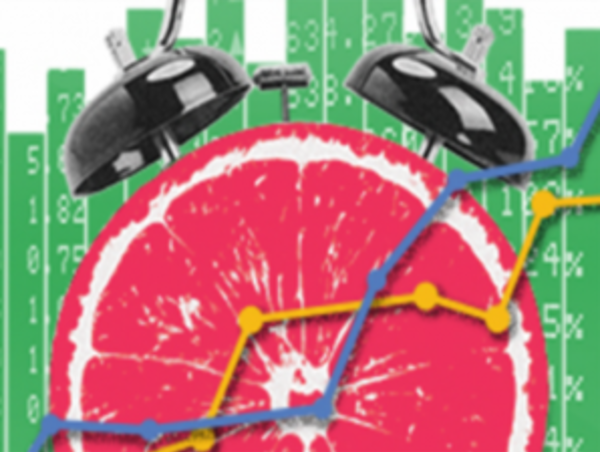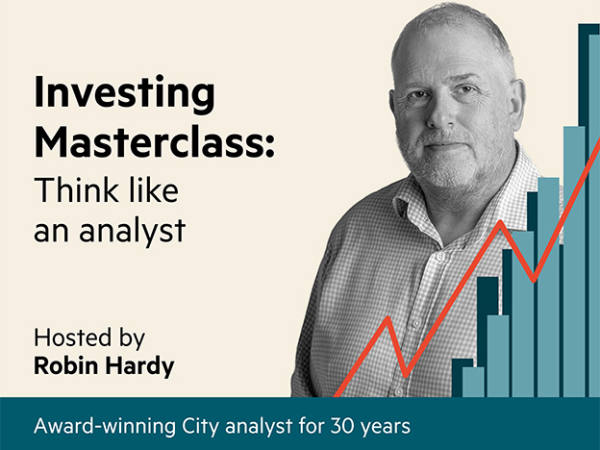I am always dubious about books with titles like The Next Big Investment Boom, and rarely open their pages unless the dust-jacket blurb assures me that the author is a truly successful investor. Mark Shipman is. He claims to have made most of his fortune from using two very simple charting patterns, fortified with patience and discipline, to seek out trends that take a whole asset class from unloved to overpriced over multi-year periods.
And Mr Shipman is convinced that commodities currently display the characteristics of stage one of his investment paradigm, an argument supported by a chart at the beginning of the book showing that inflation-adjusted commodity prices have only been lower than their current level once in the past 80 years. Indeed, the recent 50-100 per cent price appreciation in commodities - which would put many investors off - is, for Mr Shipman, merely the indicator of bigger gains in prospect. This rounded and easy-to-read book presents a convincing investment approach.
Donald Rumsfeld won a foot-in -mouth award from the Plain English Campaign for his exposition of "known and unknown unknowns". But he had a point. I like to have at least a faint grasp of what I do not know. A year ago, I did an MBA course and can still remember the excitement as my essentially non-mathematical brain struggled with, and eventually took on board, a statistical concept known as the Normal Distribution. I think there might even have been a brief period, measured in weeks, when I was capable of valuing an option by the Black-Scholes formula. It's all gone now, though, and I am haunted by my ignorance about the vast area of investment known as quantitative finance.
So I was equally delighted and dismayed to come across Paul Wilmott's 400-pager, Frequently Asked Questions in Quantitative Finance. Delighted, because I never came across more hard data packed into a more economic format. Dismayed, because a suitable sub-title for this book would have been, 'With No Guarantee You Will Understand the Answers'. In truth, you would need at least a degree in maths to understand more than 80 of these 400 pages, but those 80 are very fulfilling and you will get some valuable crumbs from the other 320. In the delightful Brainteasers chapter, you will also find a great alternative to Christmas Day television (see quote above). Here's the clue: the answer is a whole number.
If shareholder value is motherhood and apple pie, in Corporate Governance Adrift, two French economics professors - Michel Aglietta and Antoine Riberioux - offer a heavyweight critique of this philosophy. They dismiss the popular explanation for corporate scandals, which lays the blame on corrupt gatekeepers such as accountants and analysts: "To use a metaphor, the gatekeeper thesis would attribute violence in society to the incompetence of the forces of law and order, without questioning the root cause of that violence."
They argue that corporate scandals are explained by the shareholder-value consensus vaunting a high share price above everything else. So companies are managed to provide what financial markets want (including, say, illogical takeovers), rather than what is in the best interests of society, employees and, ultimately, shareholders. This very French analysis goes on to propose "the socialisation of savings" - in other words, taking the management of savings out of the hands of those pesky financial markets. I certainly subscribe to a lot of the critique in this book, and the 200-page survey preceding the 80 pages of concluding argument is a tour de force. But I doubt whether the proposed cures would be effective or even practical. Still, if you have a sneaking feeling that the last set of scandals was not the last, this book will be grist to your mill.
Now for two books at opposite ends of the light/heavy spectrum. The Undercover Economist, by Tim Harford, is the best-written book on this page: a joy to read. Mr Harford uses economics to explain what's going on in the world, and what should be going on. Scarce resources, market power and price-gouging are on parade. You will understand congestion charging, US healthcare costs, the dreadful packaging of Tesco's Value range and why Intel charges less for its more costly chip.
Finally, for anyone tempted by any of those 'get rich by trading' adverts, I suggest Bets and the City. It's a two-year diary of ingénue Sally Nicolls' induction into the world of spread betting and similar speculations. Her lightly pitched and frightfully honest account won't put you off, but it will mark your card.
You can buy all these books at discounted prices from the investors chronicle Bookshop on 01730 233870.
Alistair Blair, a past winner of the Business Writer of the Year Award, has worked in investment banking and fund management. E-mail: a7461blair@pobox.com www.investorschronicle.co.uk/nofreelunch






